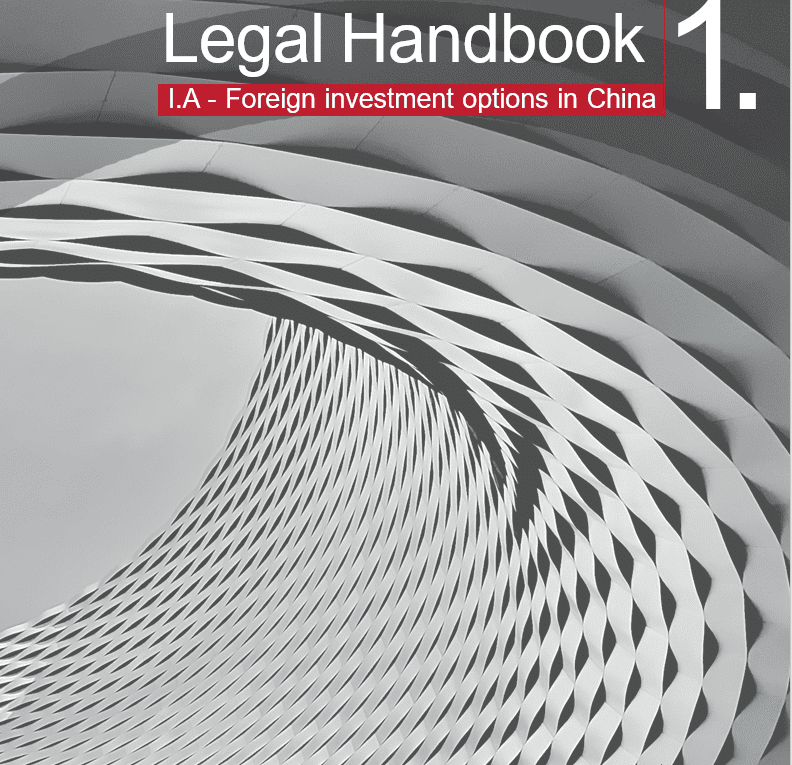Why should a foreign entity continue to use Hong Kong as an entry point for their operations in Mainland China?
Hong Kong corporate and legal environment have allowed this Special Administrative Region to remain an entry point to do business with China. This article looks at the corporate and legal framework for which Hong Kong is clearly more attractive than Mainland China.
Is it easier to set up a company in China than in Hong Kong?
Even if formalities to set up a company in China have improved, setting up a company in Hong Kong remains faster as no authorization is requested. The incorporation of a company in Hong Kong takes between 3 to 4 days whereas the incorporation process in China will take around 30 days to 40 days.
The documentation to provide in Hong Kong is also much easier to gather. For example, China still request official translations certified by the Chinese embassy of the country of the investor, which will take up to 2 to 3 weeks to prepare.
Is it simple to set up a Chinese company from a holding in Hong Kong?
The incorporation in China of the subsidiary of a Hong-Kong company remains also much easier as Chinese authorities process more easily corporate documents of Hong Kong companies. Documents are drafted in both Chinese and English which avoid official translations and notarizations.
The cost of setting-up and maintaining a Hong Kong company is low and all administrative procedures (including the incorporation process) can be done in a limited period time.
What are the main advantages of a Hong Kong Company compared to a Chinese company?
In addition to providing a legal environment based on the rule of law, Hong Kong company law offers a flexible system giving tools to foreign companies to properly structure their investment in China.
In order to avoid the rigidity of the Chinese company law, foreign investors will use a Hong Kong holding company between their mother holding company in their home country and their operating company in China. This structure will allow the foreign company the flexibility provided by Hong Kong as follows:
– Easiest issuance of shares mechanism
Hong Kong companies enjoy the ease and freedom of issuing shares to investors without the approval of any authorities. On the contrary, a capital increase of a Chinese company is subject to the approval of several PRC authorities.
– Issuance of shares to shareholders at different prices
The share price of a private company in Hong Kong can be set freely and does not need to be approved by the Hong Kong authorities. Shareholding in a Hong Kong company can therefore be uncorrelated with the amount of investment.
In China, such discrepancy is not permitted. If an investor invests for 50% of the registered capital, he shall obtain 50% of the shares issued by the company.
– Issuance of different classes of shares
A Hong Kong company can issue different classes of shares, giving the possibility to organize the rights and obligations of the shareholders either personally or granted through shares. Organizing basic mechanisms used for Private Equity deals such as non-voting shares, preferred shares with ratchet mechanism, redemption rights or specific liquidation rights can be done under Hong Kong law whereas it is not possible in China. In addition, Hong Kong allows to put in place implementation mechanisms based on escrow of certain documentation whereas this is not possible in China.
– Organizing the exit of the shareholders
Hong Kong also offers good option for a way out from a Chinese operating company. When a foreign company wishes to sell its operating company in China owned by a Hong Kong company, such foreign company shall sell the Hong Kong company instead of the operating entity registered in Mainland China.
The buyer and the seller will enjoy multiples advantages offered by the Hong Kong: freely set up the price, conditions and timeline for payment, implement correctly any tag/drag along clauses, etc. Transfers of shares of Hong Kong companies do not require approval and can be done in a limited period of time.
By comparison, all equity transfers in China shall be approved by the Chinese administration. Such approval can be time consuming and the authorities may challenge the price, condition and timeline of payment of the equity interest, etc.
One shall note that the PRC regulations set forth a tax levied on the added-value in the case of share transfers of Hong Kong company holding the capital of a Chinese company.
Does this list of advantages justify to use a Hong Kong company in every case to do business in China?
Chinese companies can offer specific advantages that cannot be found in any other structures. The Chinese company can issue official invoices (fapiao) to the local clients. Chinese customers will often request such fapiao as a condition of their payment.
In addition, a Chinese company can receive and pay in RMB (or Yuan).
Chinese companies can be solely entitled by law to undertake certain some activities such as hiring employees, renting premises, holding corporate accounts (despite the fact that China is experimenting offshore bank accounts in the Shanghai free trade zone).
Some business activities can only be directly conducted by Chinese companies such as buying goods in China and selling such goods in China to local customers.
Conclusion:
As of to date, Hong Kong still offers numerous advantages to foreign companies willing to organize their joint investment with foreigners to create and operate a company in Mainland China.
Chinese company can be operated without a Chinese partner. In addition, the constraints related to the capitalization of Chinese companies are disappearing
Therefore the development of fully-foreign investment shall continue to see Hong Kong as the best tool for structuring their joint investment for operating companies.
For more information, you can upload our updated dedicated handbook or contact:










